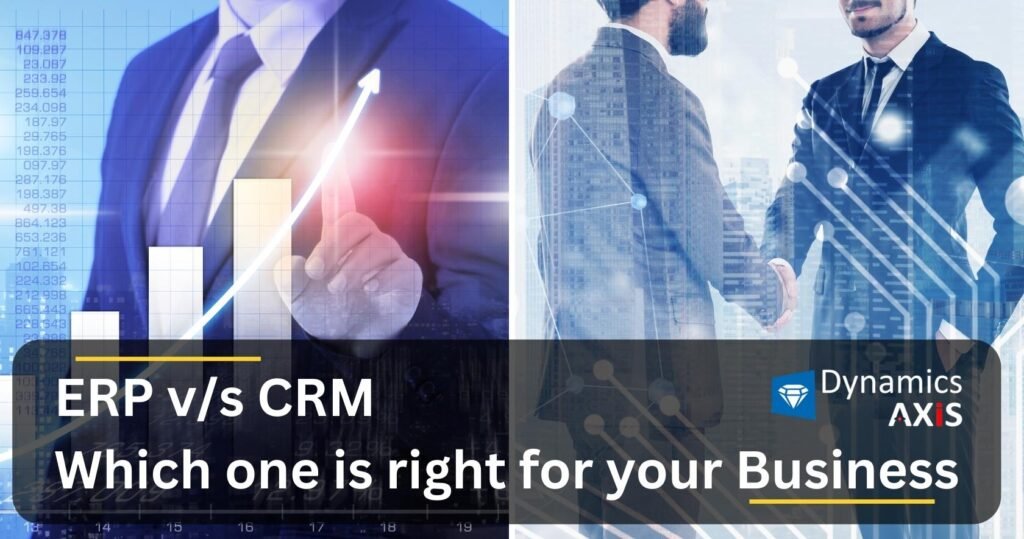ERP v/s CRM: Which One is Right for your Business?

In the world of Enterprise Software’s ERP and CRM are the most commonly recurring buzzwords you might have heard.
Are you a business owner who is looking to adopt a new system to automate your workflow, or to change the existing system to a new one?
Do you find yourself confused about which one to choose?
The following article will go over the key features of both ERP & CRM software and the key differences between them, enabling you to make the best decision on which to implement for your business.
CRM: Enhancing Customer Relationships

Customer Relationship Management (CRM) software is primarily focused on your interactions with customers. It’s all about improving customer engagement, satisfaction, and loyalty. CRM systems are designed to centralize customer information, track interactions, and provide insights that help you build stronger, more profitable relationships.
Key Features of CRM:
- Customer Data Management: CRM collects and organizes customer data, such as contact information, purchase history, and communication history.
- Sales Management: It helps sales teams manage leads, opportunities, and track the sales pipeline.
- Marketing Automation: CRM includes tools for email marketing, lead nurturing, and campaign management.
- Customer Support: It supports customer service with case management, ticketing systems, and knowledge bases.
- Analytics: CRM offers insights into customer behavior and preferences.
ERP: Streamlining Your Business Processes

Enterprise Resource Planning (ERP) software is a comprehensive solution designed to manage and optimize various aspects of your business processes. It acts as a centralized system that integrates multiple functions and departments, including finance, HR, inventory management, procurement, manufacturing, and more. ERP is like the backbone of your organization, ensuring that various operations run efficiently and smoothly.
Key Features of ERP:
- Centralized Database: ERP systems provide a single source of truth for all data across your organization, facilitating better decision-making.
- Efficiency: They automate and streamline internal processes, reducing manual tasks and improving productivity.
- Financial Management: ERP handles accounting, budgeting, and financial reporting.
- Supply Chain Management: It optimizes inventory and supply chain processes to reduce costs.
- Manufacturing: ERP assists in production planning, quality control, and work order management.
- Human Resources: It manages employee data, payroll, and HR processes.
The Key Differences
- Focus: ERP focuses on internal processes, while CRM centers on customer interactions.
- Integration: ERP integrates various internal functions, while CRM integrates customer-related functions.
- Use Cases: ERP is used by multiple departments, while CRM is typically used by sales, marketing, and customer service teams.
- Data: ERP stores data on products, inventory, finances, and employees, while CRM stores data on leads, customers, and interactions.
- Goals: The goal of ERP is to streamline operations and reduce costs. The goal of CRM is to enhance customer relationships and increase sales.
Conclusion
In conclusion, ERP and CRM are distinct but complementary solutions that can be crucial for your business. The choice between them depends on your organization’s specific needs. In some cases, businesses benefit from implementing both to achieve operational efficiency and improved customer relationships.

Consider your business goals, and evaluate whether you need a robust ERP system, a customer-centric CRM solution, or a combination of both to excel in today’s competitive landscape.
Our Flagship solution, FactsERP comes with a dedicated CRM module helping you integrate the business operations along with customer relationship management providing a complete solution to navigate the market and outperform your competition.
Contact Us at Dynamics Axis for more info.
